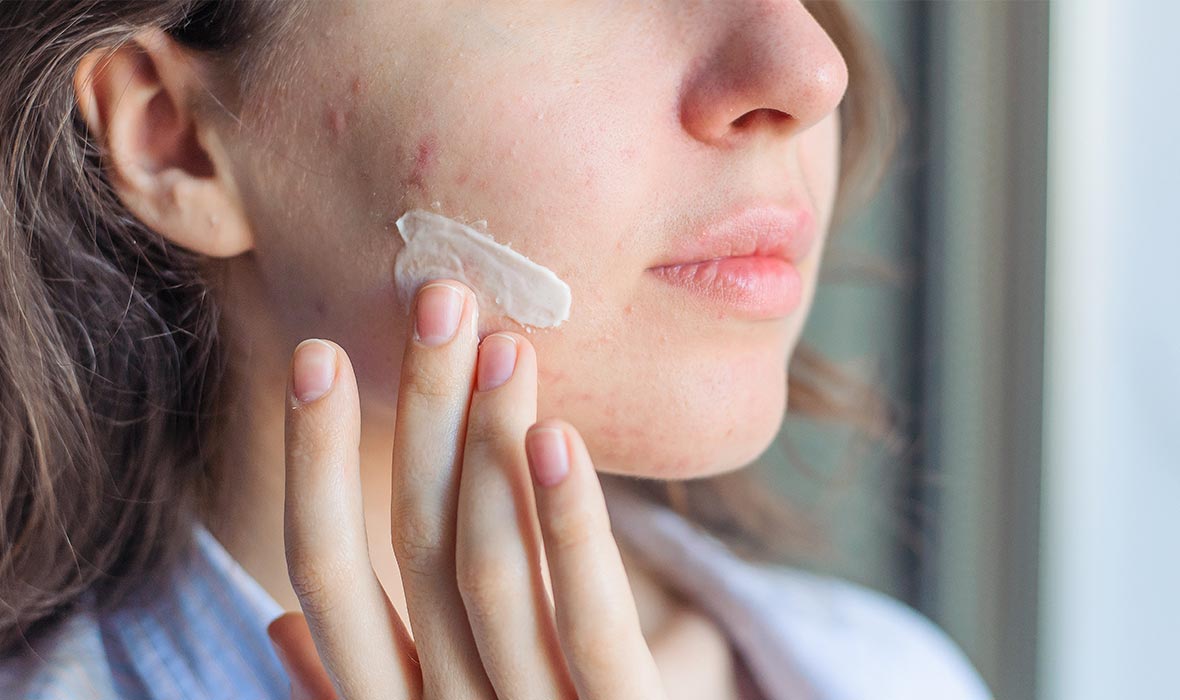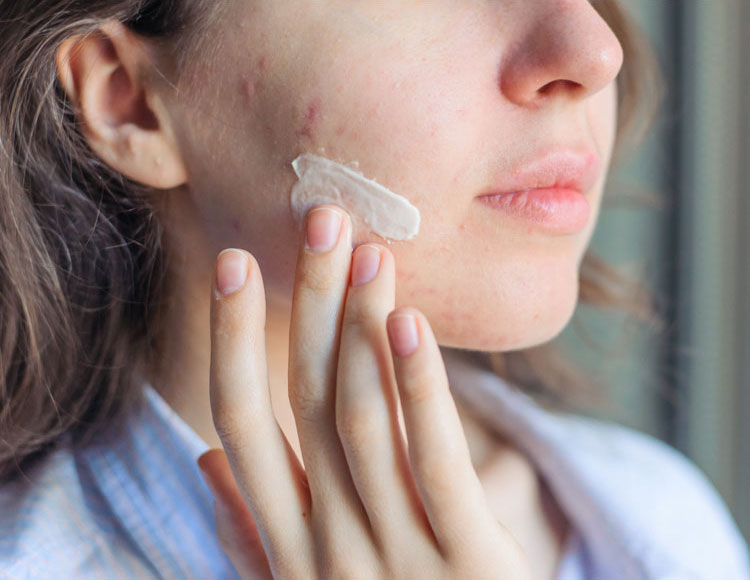Skin Types And Acne
Does your skin get shiny mid-way through the day? Or maybe even half an hour after you’ve washed your face? You probably have oily skin.
Read blog>Because acne starts when the body produces excess sebum (oil), it’s easy to associate acne with shiny, oily skin. The truth is, acne can affect all skin types – oily, normal
Read blog>Having combination skin is no easy feat… managing one skin type can be a challenge, let alone two. Luckily, we can help. Treating combination skin is all about balance.
Read blog>Acne can be a pain to deal with no matter your skin type, but if you have sensitive skin, it can be even more confusing. Products that work for your friends and family
Read blog>There are benefits to having oily skin, but it can be one of the most frustrating skin types. That’s because more oil can mean more acne
Read blog>Winter is the season that reminds some of us of cold, snow, bundling up, holidays and seeing family. Unfortunately, it’s also the season of dry skin.
Read blog>If you’ve ever wondered, "What is combination skin?" or "How do I treat combination skin?" this article is for you. Simply put, having combination skin means that some areas on your skin are dry
Read blog>Do you often find your t-zone looks a bit greasy? Maybe you’re constantly battling unwanted shine. One of the main skin dilemmas dermatologists and makeup artists
Read blog>If you have oily skin, you’ve probably experienced a fair share of breakouts. That’s because the extra oil on your skin can mix with dead skin cells and other debris to clog your pores
Read blog>You probably don’t want your skin looking shiny, but oil is not always a bad thing. Oil produced by your skin (also known as sebum) is part of your skin’s natural hydrating
Read blog>Sick of the afternoon shine and breakouts you get on the oily, slick parts of your face? You’re not alone. In fact, everyone has a t-zone and if your skin is typically
Read blog>Are you wondering if oily skin is what’s causing your acne? You’re not too far off since excess oil created by your sebaceous glands is one of the contributing factors that can lead to acne
Read blog>As summer approaches, many people look forward to pool parties, beach days, and outdoor hangouts with friends.
Read blog>When talking about acne and its potential causes, you’ll tend to notice that the term "pores" comes up quite often. After all, breakouts occur when pores become clogged with excess sebum
Read blog>Wondering why your complexion is shiny, no matter how often you cleanse or powder your face? If you’re questioning, "Why is my face so oily?", you’ve come to the right place.
Read blog>Your skin is as unique as you are. That’s why you need an acne solution tailored to your skin type. Whether your skin is normal to oily, acne-prone or sensitive
Read blog>Has your skin been feeling tight or itchy lately? Have you been experiencing peeling and cracking? Dry skin, what dermatologists refer to as xerosis, is often temporary or seasonal
Read blog>For many people, New Years’ resolutions include eating healthier and working out after indulging in all the holiday goodies, but it’s also important to take care of your body’s largest organ — your skin! And if you ask us, taking
Read blog>Even if you don’t suffer from acne, your pore size and cleanliness determine how smooth your skin appears. Enlarged pores can make you look older, which is something many people overlook.
Read blog>How your skin adapts to the four seasons is unique to you and your skin, but typically your skin will get oilier in the warmer
Read blog>


















